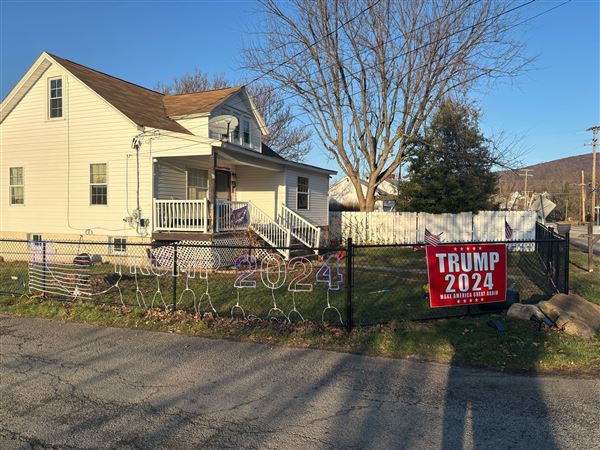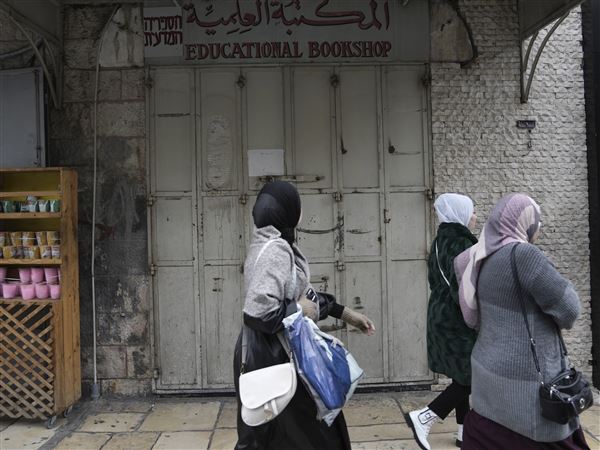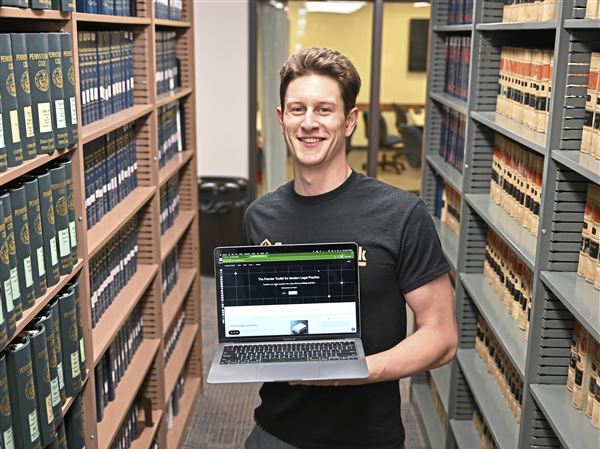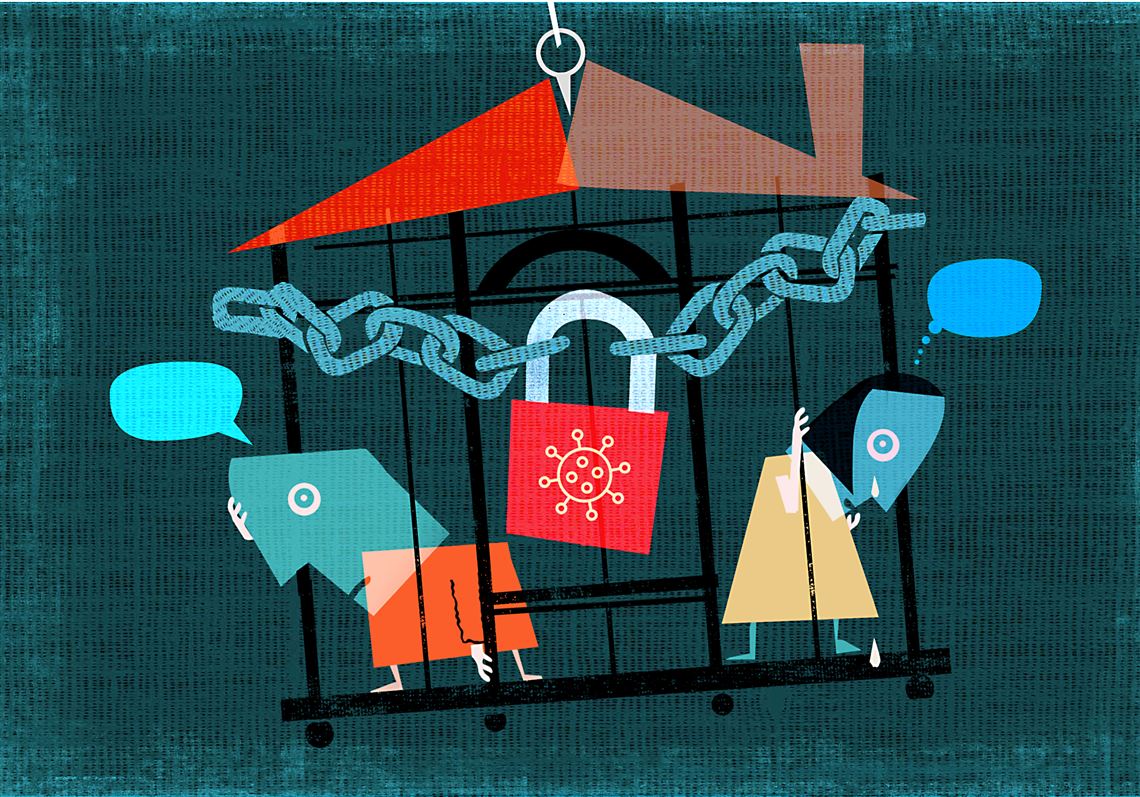Pittsburgh divorce lawyer Ken Horoho has several clients who prior to the COVID-19 outbreak decided to file for divorce yet continued living under the same roof with their soon-to-be ex-spouse — for good reasons.
Some were parents who wanted to continue co-parenting the children. Or they each might have wanted to keep the house — and worried that moving out would give the other sole possession. More often, one of them wanted to move out but was not in a financial position to buy another house yet.
“They were civil and functioning OK. And then the pandemic hit. And both of them are stuck in the house working from home, the kids aren’t in school and suddenly this huge house has gotten smaller,” said Mr. Horoho, a partner at the Gentile, Horoho and Availi law firm Downtown.
“These folks can’t wait until this pandemic is over so we can move their cases forward.”
The coronavirus outbreak and the economic turmoil it unleashed could not have come at a worse time for people in the throes of a marital split and trying to plan a new life.
On top of the ordinary stress of a divorce, they are suddenly wrestling with new financial worries about paying or receiving child support when one or both spouses have either lost jobs or may be at risk of job loss.
“Another key issue that will be in dispute in high net worth divorces is what affect will the pandemic have in determining the fair market value of closely held businesses?” Mr. Horoho said. “It’s obvious it will have a negative effect. The battleground is how much of a negative effect it will have.”
Many non-essential businesses that emerge from the COVID-19 shutdown will have a tough road ahead to full recovery. If a business can rebound quickly, there should be little change in value. But if the recovery is expected to take years, the change in value might be substantial.
“It will be the battle of economists and business valuation experts,” Mr. Horoho said. “It might take two or three years from now for the business to bounce back, considering the loss of supply chain, loss of employees and loss of customers.”
The March peak
March is usually the peak month of the year for divorce filings, both nationally and locally, according to Allegheny County court records and a national analysis by the legal information website Findlaw.com, based in Egan, Minnesota.
The month of December consistently has the lowest number of divorce filings each year because couples usually try to avoid rocking the boat during the holiday season. Then the data shows divorces typically spike in January, continue to rise and peak in late March.
This year, in many cases, couples had already signed marital agreements — binding contracts that spell out how marital assets will be evenly divided — before the COVID-19 crisis began.
Donna Cheswick, a certified divorce financial analyst based in Sewickley, said she is being asked to recalculate transfer amounts between partners due to dramatic changes in the value of stock holdings or other assets. Some clients who asked to be awarded the joint investment account instead of the family house are rethinking that.
”Maybe the house was worth $300,000 and the retirement account was worth about $300,000. The retirement accounts have gone down since the beginning of the year whereas the house hasn’t gone down much.”
And many of them don’t want to slow down the divorce.
The courthouse is closed, but clients haven’t stopped calling their lawyers to keep their cases moving ahead, said Candice Komar, a partner at the Downtown family law firm Pollock Begg.
“It’s crazy. Our phone is ringing a lot,” she said. “I guess dealing with life and death makes you wonder what you really want out of life. But I’m surprised it’s not quiet.
“You would think people are taking care of kids, shopping for groceries or making masks. But they are calling divorce lawyers.”
Ms. Komar has been conducting client mediations with the videoconferencing tool Zoom. She said it’s been incredibly effective, even if some of the discussions between the divorcing parties have been notably difficult.
“I have a client and his wife wants the house,” she said. “He has no problem with that. They agreed that she gets the house. Both are living in misery. She’s with her parents rights now. He is living in the marital house.
“But she wants him to move out during a pandemic and she’s not willing to negotiate that.”
Jeff Pollock, a sole practitioner with a home office in Squirrel Hill, is also using collaborative mediation to help divorcing couples reach settlements without a judge or a full-blown court hearing.
The Pennsylvania Collaborative Law Act, which became law two years ago, allows couples to reach their own agreements outside of court on the division of assets and the child custody schedule to meet the needs of the mother, the father and the children. With the collaborative law process, couples are free to agree on any type of financial plan that works for them, even if it might be outside the authority of the courts.
An example of that would be college tuition. Courts will not rule on a parent’s obligation to pay for college because in Pennsylvania parents are not financially responsible for children after age 18. But in the collaborative law process, divorcing parents can agree in writing how they will pay for college.
Mr. Pollock said he has seen the collaborative process work miracles for divorcing couples who were able to communicate so effectively during the face-to-face meetings they ended up canceling the divorce.
But he believes the meetings lose intimacy when they are held on the Zoom teleconferencing app, which can come across as sterile and fraught with technical difficulties.
“It’s not as warm and fuzzy as being in person,” Mr. Pollock said. “You don’t have the coffee and lunch. You can’t read body language. It’s just a picture from the neck up, sitting at a phone, a computer or an iPad. How they sit or clench their hands is not communicated near as effectively.”
Child custody concerns
The first wave of divorce court cases filed at the very start of the shutdown for non-essential businesses were for child custody issues. That’s why family court judges have had to continue holding emergency hearings via teleconferencing although courts are closed.
There were disputes over parents not wanting children to have visitation with the other parent out of fear the other parent’s home wasn’t safe from the coronavirus.
Parents who worked in healthcare were being denied visitation. In some cases, a parent lived out of state and were being denied visitation because the other parent decided not to abide by child visitation order.
A ruling by the Fifth Judicial District of Pennsylvania on March 26 required parents to abide by all custody schedules that were put in place before the coronavirus state of emergency.
What happens next?
While she hasn’t had to redo a divorce settlement so far, Dorothy O’Neil, a partner and family law attorney at the Burns White law firm in the Strip District, said she has doubts about how equitable it is to negotiate settlements right now when high net worth clients have lost 15% to 20% in the value of their investment accounts.
“This is not due to the economy. This is caused by a virus,” she said. “Is it equitable to proceed with divorces considering there could be an uptick?“
One sobering realization some couples have come to during the pandemic is that if they are struggling to maintain their current household, it will be painful — if not impossible — to support a second one.
“Divorce is one of the most stressful situations a person can be in. That’s in the best of times,” said Katie Markowski, certified divorce financial analyst at Watermark Financial in Mount Lebanon. “For a lot of people right now, the timing is so stressful and uncertain they might just put the brakes on divorce.
“Divorce requires a series of difficult life-changing decisions,” she said. “It has to be substantially more difficult to do that now when everything is so uncertain emotionally and economically.”
Tim Grant: tgrant@post-gazette.com or 412-263-1591.
First Published: April 27, 2020, 12:31 p.m.

















